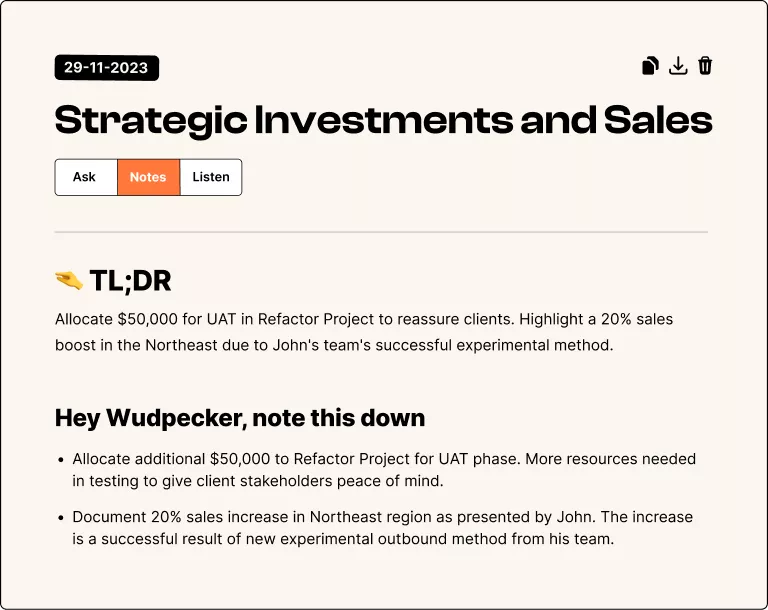Emma, a project manager at a tech startup, found herself in a familiar morning routine. Before even finishing her first coffee, she was rushing to her first meeting of the day. But as the day progressed, details started to blur and crucial insights from these meetings seemed to slip away.
Are personal assistants only for executives?
Upstairs in the boardroom, the company CEO followed a similar routine. Meetings with investors, department check-ins, and strategic planning sessions filled his calendar. Unlike Emma, he had Chris - his diligent assistant who was always one step ahead. Chris prepared meeting agendas, took detailed notes, and reminded him of important deadlines. He was the unseen force behind the CEO's "productivity at work."
Meanwhile, Emma was juggling multiple project timelines and team member progress, all the while scanning through her notes for the next meeting. Like many others in the organization, Emma wished she had an assistant like Chris - someone to help manage the daily workflow and keep her organized.
The Rise of AI Assistants in the Workplace
This need for an assistant was common across the organization. Employees, competent and driven, were fighting a continuous battle against an avalanche of information. But doubling the headcount to get everyone an assistant isn’t practical. Enter the AI assistant.
The Democratization of the AI Assistant in the Workplace
Imagine if Emma had a Chris 2.0 - an AI assistant equipped with an impeccable memory that could perfectly record every AI meeting. This AI assistant could analyze conversations, distill key points, and create comprehensive summaries. Emma could quickly ask Chris who had committed to a certain task in the last week's project and receive an immediate answer.
How AI Assistants Boost Productivity at Work
With this AI assistant, Emma could focus on her meetings, secure in the knowledge that all crucial information was being accurately captured. She could review the assistant's notes after each meeting, marveling at how easy it was to recall vital information. This AI in the workplace unburdened Emma from remembering every detail, allowing her to concentrate more on strategy and innovation.
The Transformative Power of AI Assistants
Emma wasn’t alone in experiencing the transformative power of the AI assistant. Across the company, engineers could swiftly pull up code snippets from previous discussions. Marketers could track their campaign progress over time. Sales and Customer Success reps had comprehensive client histories at their fingertips.
The privilege of a personal assistant, once limited to the corner offices, was now accessible to all. This democratization of the AI assistant was changing the way work was done, enhancing productivity at every level of the organization.
Companies like Wudpecker are stepping up to offer this AI solution to all employees. This is the future of work - where the AI assistant is central to productivity at work and streamlining the knowledge search process.



.svg)





.png)
.png)

.png)












.svg)
